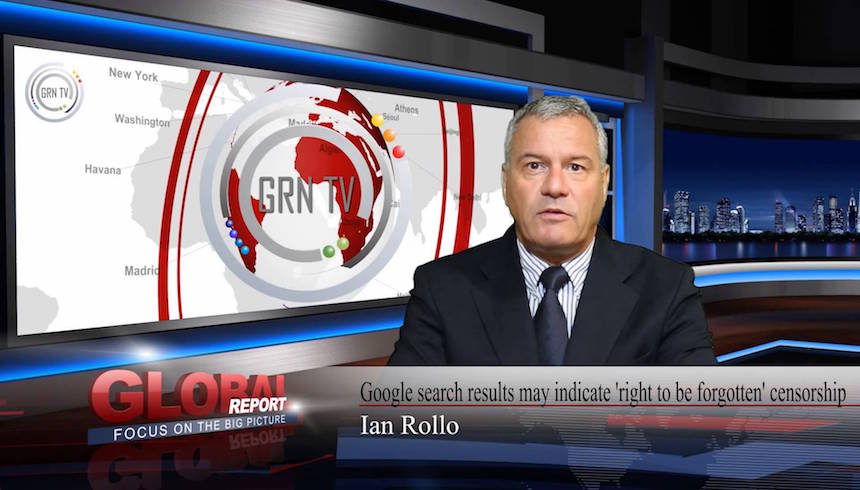Right to be Forgotten:
Right to be forgotten is defined as the right ‘right to silence on past events that are no longer occurring.’ It comes from the profound wish of being forgiven and forgotten for one’s past mistakes. None of us would want to be reminded or judged for a mistake we committed in our past. A misdeed, we have already been punished for.
In India, Information Technology Act, 2000 and Information Technology Rules, 2011 do not cover right to be forgotten. Rule 3 of the Information Technology Rules, 2011 states that due diligence has to be exercised by intermediaries to make sure among other things that the data does not invade another’s privacy. Right to be forgotten is not provided for anywhere in the Indian legislation.
Sunil Abraham, Executive Director of Centre for Internet and Society had stated that ‘right to be forgotten should not have a chilling effect on transparency. The information must pass the ‘public interest’ test. If it does not serve any public interest, then there is no point of having the content onli4.’
Spanish Case on Right to be Forgotten:
One of the most important judgments with regard to right to be forgotten is the decision of the European Court of Justice in Google Spain SL, Google Inc. v Agencia Española de Protección de Datos, Mario Costeja González (2014).
Mario Costeja González, was a Spanish man whose article on auction for his foreclosed home due to social security debts in 1998 was published by La Vanguardia newspaper. He had finally paid off those debts in 2009. Yet, this piece of information continued to occur, every time he searched for his name on Google. Hence, he filed a case with Spanish Data Protection Agency asking the newspaper and Google to remove the link. The Agency rejected the request made to newspaper but directed Google Spain and Google Inc. to remove the link.
Google Spain and Google Inc. appealed against the decision with the High Court of Spain. Subsequently, The Court of Justice of the European Union held that an Internet search engine operator has to process personal data and delink information carried by third parties.
Following this decision, Google even released a form which could be filled by users who want their information to be delinked. The problem with the judgement is that it leaves the decision on the intermediary to decide whether the information serves public interest or not.
Right to be Forgotten Cases in India:
MEDIANAMA.COM
In 2014, Medinama.com was one of the first Indian websites to have received a request from a man to delink an information about himself, failing which he would approach Google exercising his right to be forgotten which was upheld by the European Court of Justice.
The information was published a few years ago regarding his protests against attacks on his freedom of speech. However, due to legal pressure, he later retracted his request.
INDIANKANOON.COM
The Delhi High Court has asked the Centre if Right to Privacy includes a right to delink from Internet, irrelevant information about oneself. An NRI has pleaded to be delinked from information regarding a criminal case involving his wife and mother, which he was not a party to.
He found that anyone who searches his name on Google would find the criminal case on the second number of the search page giving an impression that he was involved in the case. HR said this would affect his employment opportunities as companies often search online for information on prospective candidates.
The petitioner got in touch with IKanoon making a request to take down the aforesaid judgement. He has also contacted Google Inc. and Google India. Appearing on behalf of him, Advocates Rohit Madan and Akash Vajpai said that the petitioner was now living happily with his wife and son. Justice Manmohan sought the responses of Ministry of Communication and Information Technology (MOC & IT), Google Inc., Google India Pvt. Ltd. and IKanoon Software Development Pvt. Ltd. They have been asked to file a reply by September 19.
Conclusion:
This is an important development as it is the first time that the court has interfered in this realm, where India has no clear cut laws. This would mean a fresh challenge of bringing a balance between right to information and right to privacy.
Right to be forgotten is important in many cases where there is unverified information about people. Moreover, genuine cases like the one before the High Court at present need to have the right to request such information to be taken down as such data unnecessarily causes hurdles in one’s life. Also, it only makes sense to limit the identity of a person once the case is over and the person has paid for his act.
The key is in identifying information that serves public interest. It would be interesting to see if the decision is left with the intermediaries or if the government would want to interfere in such cases.
Picture Courtesy: YouTube







